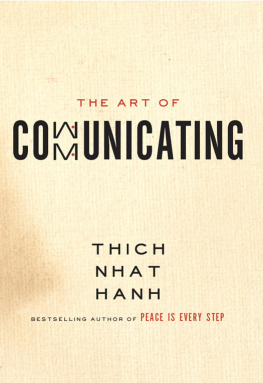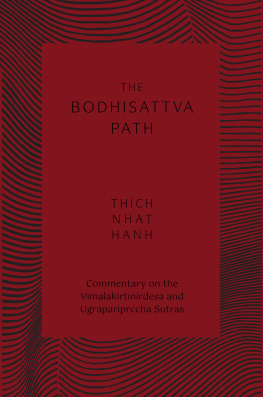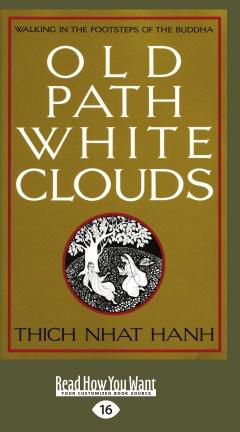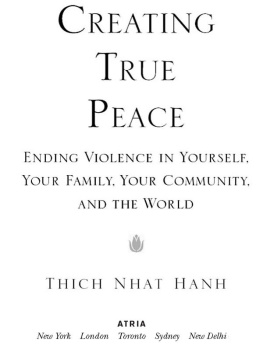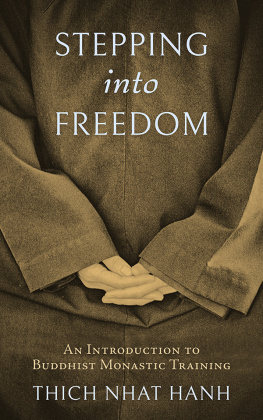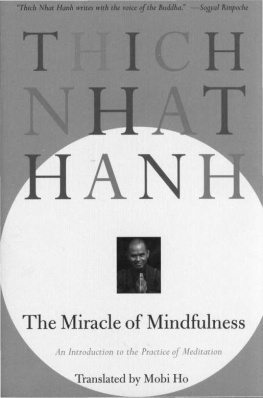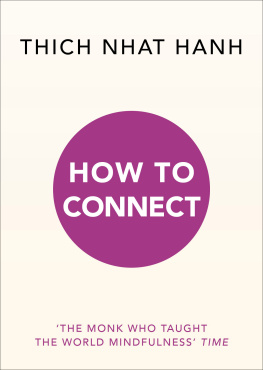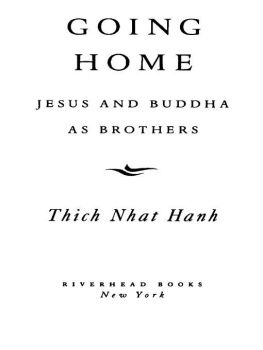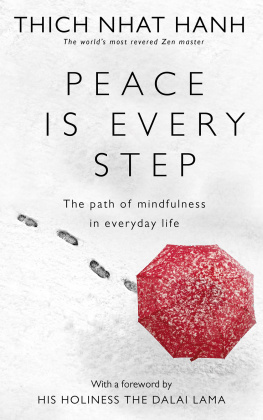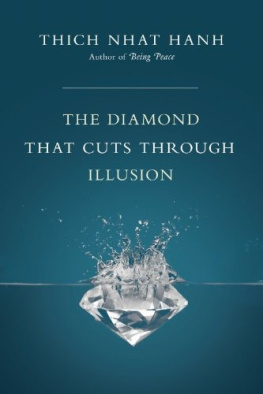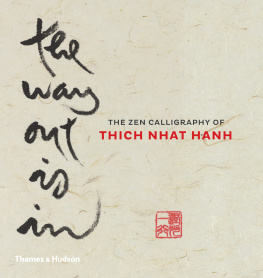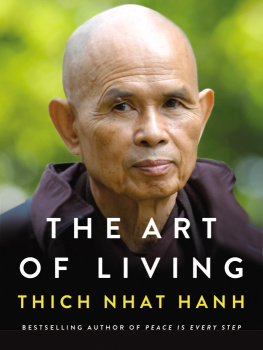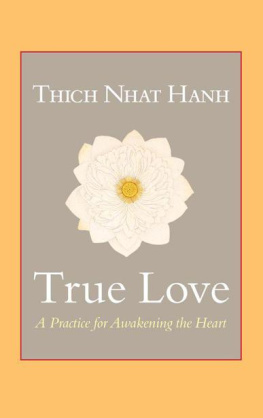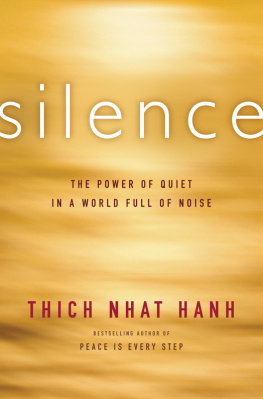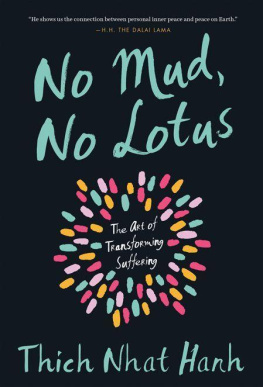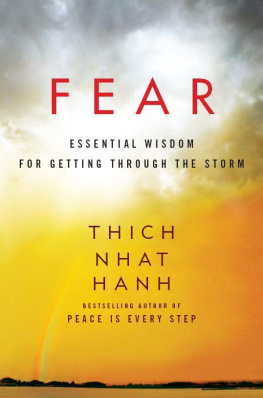
Contents
Nothing can survive without food. Everything we consume acts either to heal us or to poison us. We tend to think of nourishment only as what we take in through our mouths, but what we consume with our eyes, our ears, our noses, our tongues, and our bodies is also food. The conversations going on around us, and those we participate in, are also food. Are we consuming and creating the kind of food that is healthy for us and helps us grow?
When we say something that nourishes us and uplifts the people around us, we are feeding love and compassion. When we speak and act in a way that causes tension and anger, we are nourishing violence and suffering.
We often ingest toxic communication from those around us and from what we watch and read. Are we ingesting things that grow our understanding and compassion? If so, thats good food. Often, we ingest communication that makes us feel bad or insecure about ourselves or judgmental and superior to others. We can think about our communication in terms of nourishment and consumption. The Internet is an item of consumption, full of nutrients that are both healing and toxic. Its so easy to ingest a lot in just a few minutes online. This doesnt mean you shouldnt use the Internet, but you should be conscious of what you are reading and watching.
When you work with your computer for three or four hours, you are totally lost. Its like eating french fries. You shouldnt eat french fries all day, and you shouldnt be on the computer all day. A few french fries, a few hours, are probably all most of us need.
What you read and write can help you heal, so be thoughtful about what you consume. When you write an e-mail or a letter that is full of understanding and compassion, you are nourishing yourself during the time you write that letter. Even if its just a short note, everything youre writing down can nourish you and the person to whom you are writing.
Consuming with Mindfulness
How can you tell what communication is healthy and what is toxic? The energy of mindfulness is a necessary ingredient in healthy communication. Mindfulness requires letting go of judgment, returning to an awareness of the breath and the body, and bringing your full attention to what is in you and around you. This helps you notice whether the thought you just produced is healthy or unhealthy, compassionate or unkind.
Conversation is a source of nourishment. We all get lonely and want to talk with someone. But when you have a conversation with another person, what that person says may be full of toxins, like hate, anger, and frustration. When you listen to what others say, youre consuming those toxins. Youre bringing toxins into your consciousness and your body. Thats why mindfulness of speaking and mindfulness of listening are very important.
Toxic conversation can be difficult to avoid, especially at work. If it is going on around you, be aware. You need to have enough mindful awareness not to absorb these kinds of suffering. You have to protect yourself with the energy of compassion so that when you listen, instead of consuming toxins, youre actively producing more compassion in yourself. When you listen in this way, compassion protects you and the other person suffers less.
You absorb the thoughts, speech, and actions you produce and those contained in the communications of those around you. That is a form of consumption. So when you read something, when you listen to someone, you should be careful not to allow the toxins to ruin your health and bring suffering to you and to the other person or group of people.
To illustrate this truth, the Buddha used the graphic image of a cow that has a skin disease. The cow is attacked by all kinds of insects and microorganisms coming from the soil, coming from the trees, coming from the water. Without skin, a cow cant protect herself. Mindfulness is our skin. Without mindfulness, we may take in things that are toxic to our body and mind.
Even when you simply drive your car through the city, you consume. The advertisements hit your eyes, and youre forced to consume them. You hear sounds; you may even say things that are the products of too much toxic consumption. We have to protect ourselves with mindful consumption. Mindful communication is part of this. We can communicate in such a way as to solidify the peace and compassion in ourselves and bring joy to others.
Relationships Dont Survive Without the Right Food
Many of us suffer because of difficult communication. We feel misunderstood, especially by those we love. In a relationship, we are nourishment for each other. So we have to select the kind of food we offer the other person, the kind of food that can help our relationships thrive. Everythingincluding love, hate, and sufferingneeds food to continue. If suffering continues, its because we keep feeding our suffering. Every time we speak without mindful awareness, we are feeding our suffering.
With mindful awareness, we can look into the nature of our suffering and find out what kind of food we have been supplying to keep it alive. When we find the source of nourishment for our suffering, we can cut off that supply, and our suffering will fade.
Often a romantic relationship begins beautifully, but then, because we dont know how to nourish our love, the relationship begins to die. Communication can bring it back to life. Every thought you produce in your head, in your heartin China they say, in your bellyfeeds that relationship. When you produce a thought that carries suspicion, anger, fear, irritation, that thought is not nourishing to you or to the other person. If the relationship has become difficult, its because weve nourished our judgment and our anger, and we havent nourished our compassion.
One day in Plum Village, the French retreat center where I live, I gave a talk about how we needed to nourish our loved ones by practicing loving communication. I spoke about our relationships as flowers that need watering with love and communication to grow. There was a woman sitting near the front who was crying the whole time.
After the talk, I went to her husband, and I said, My dear friend, your flower needs some watering. Her husband had been at the talk and knew about loving speech, but sometimes we all need a friend to remind us. So, after lunch, the man took his wife for a drive in the country. They just had an hour or so but he focused on watering the good seeds the whole drive.
When they came back, she seemed completely transformed, very happy and joyful. Their children were very surprised, because in the morning when their parents had left, theyd been sad and irritable. So in just an hour, you can transform another person and yourself, just with the practice of watering the good seeds. This is applied mindfulness in action; its not theoretical.
Nourishing and healing communication is the food of our relationships. Sometimes one cruel utterance can make the other person suffer for many years, and we will suffer for many years too. In a state of anger or fear, we may say something that can be poisonous and destructive. If we swallow poison, it can stay within us for a long time, slowly killing our relationship. We may not even know what we said or did that started to poison the relationship. But we have the antidote: mindful compassion and loving communication. Love, respect, and friendship all need food to survive. With mindfulness we can produce thoughts, speech, and actions that will feed our relationships and help them grow and thrive.
Loneliness is the suffering of our time. Even if were surrounded by others, we can feel very alone. We are lonely together. Theres a vacuum inside us. It makes us feel uncomfortable, so we try to fill it up by connecting with other people. We believe that if were able to connect, the feeling of loneliness will disappear.
Next page
